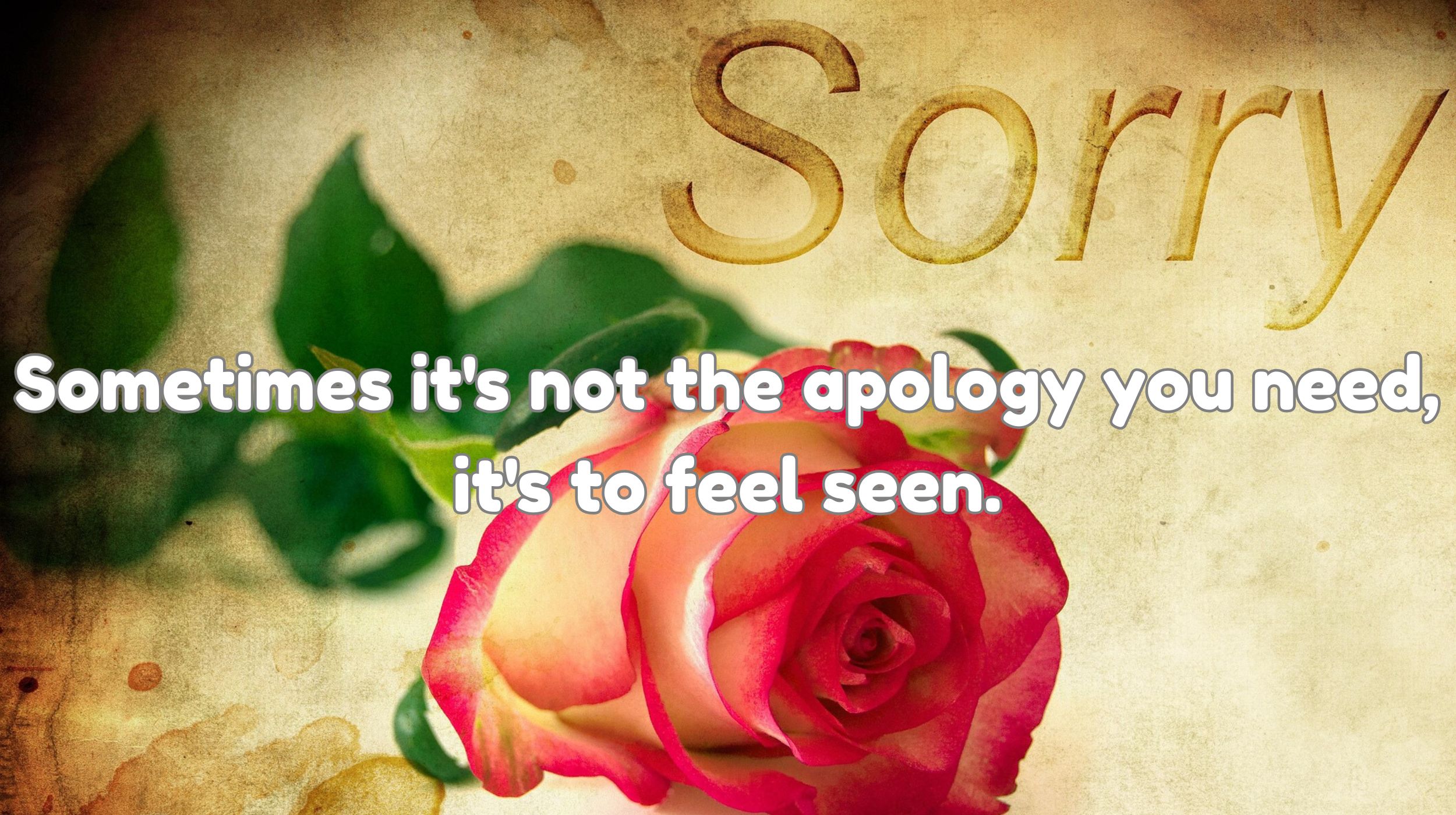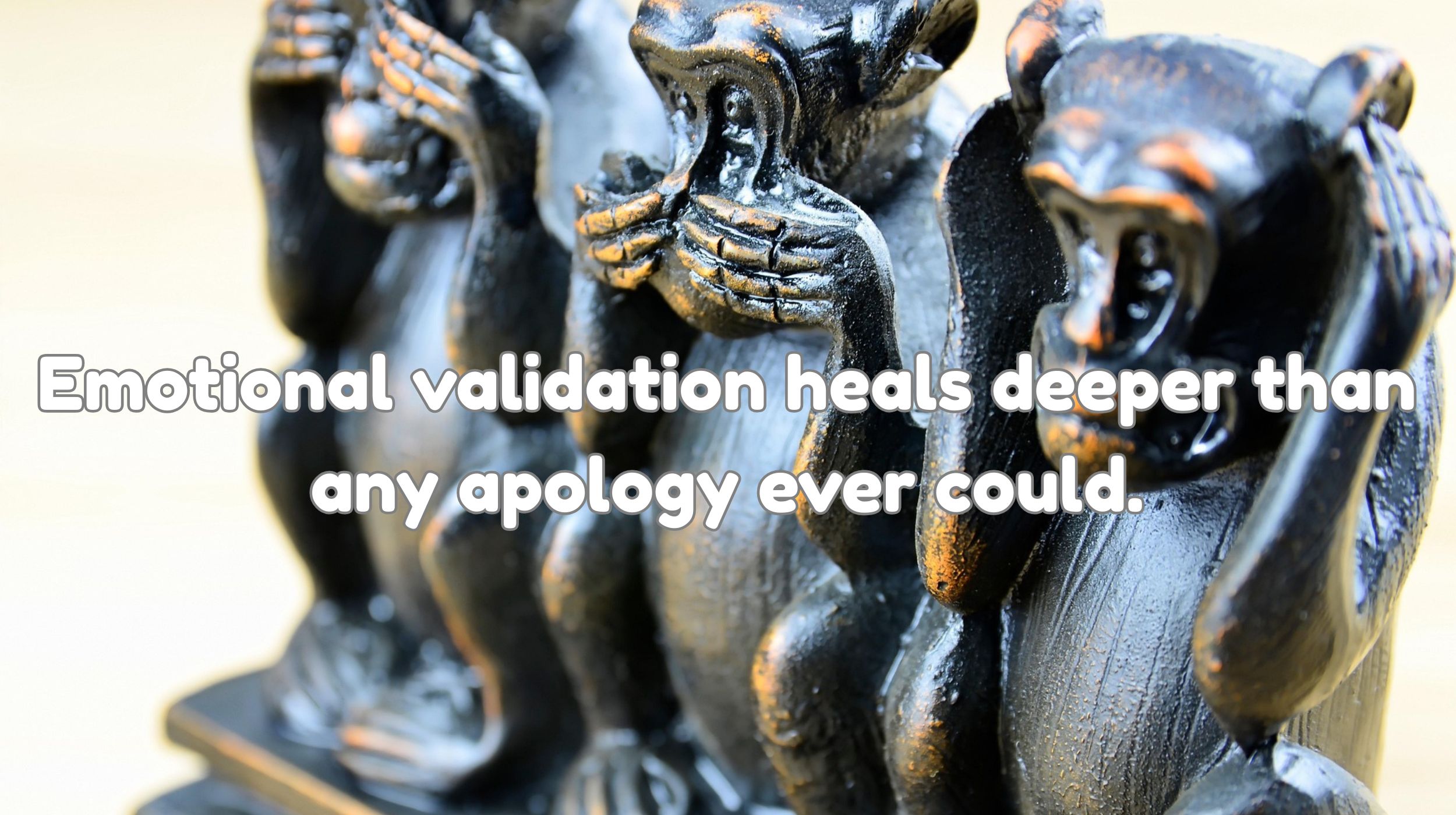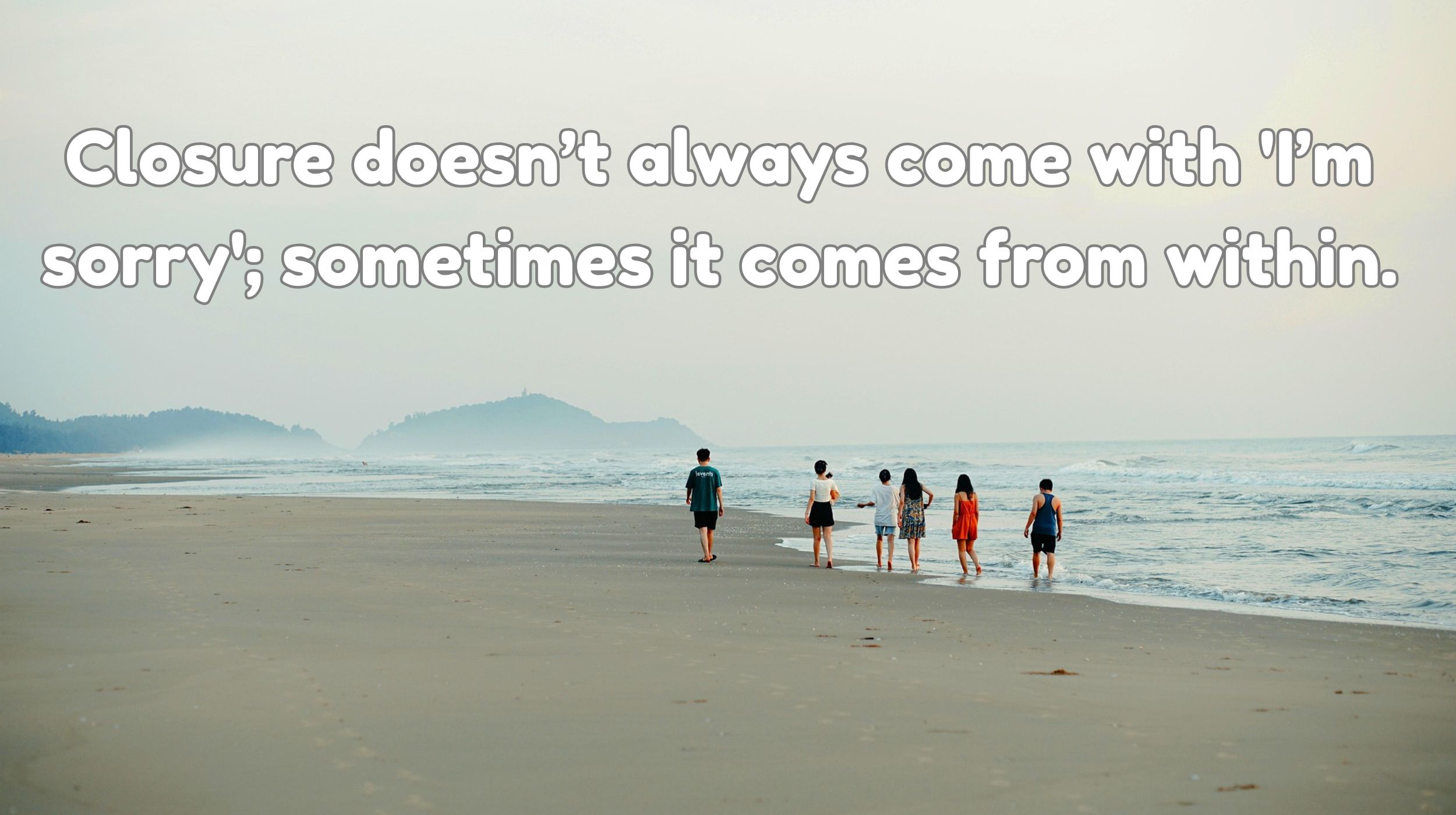No products in the cart.
Do You Really Need an Apology? The Surprising Truth About Emotional Validation
The Surprising Truth About Emotional Validation
Let’s talk about relationships. What does it mean to hear “I am sorry” after or during a fight? These three words hold weight, representing an admission of guilt and a desire for change. But what happens when you don’t hear them? Does the absence of an apology mean that the relationship is not improving? The way people approach apologies can reveal a lot about their personality and emotional development.
The Different Types of People and Apologies
Not everyone approaches apologies in the same way. Understanding the different typologies of people when it comes to saying “I am sorry” can help us navigate our relationships better.
The Over-Apologizer
Some people say “I am sorry” for everything, even when it’s unnecessary. They carry a deep sense of guilt from their past and often struggle with low self-esteem. For them, saying “I am sorry” is a way to be seen, validated, and accepted by others. They fear rejection and aim to please others, even at their own expense. However, as they age, particularly past their 40s, they may start feeling cornered and confused, realizing they have let things go too far. They begin to question their need to apologize for everything and work towards building their self-worth.
The Never-Wrong Type
This person believes they are always right and expects the other person to apologize first. Their ego is high, making it difficult for them to acknowledge their mistakes. They hold onto grudges and struggle to move past disagreements. This mindset prevents growth and improvement in relationships, as they are more focused on proving a point than resolving conflicts. For them, apologizing feels like losing, which is why they resist it.
The Silent Apologizer
This type of person does not say “I am sorry” but instead demonstrates remorse through their actions. They acknowledge their mistakes but refuse to verbalize an apology, believing that doing so would mean surrendering power in the relationship. While their actions may indicate change and regret, the absence of verbal acknowledgment can be frustrating for their partner. Expecting them to say “I am sorry” can feel like forcing them to change their nature, which may not always be necessary if their actions show true effort to make amends.
Which Type Are You?
Understanding which category, you fall into can help improve your relationships. Are you someone who apologizes too much, struggles to say it at all, or prefers to show rather than speak? Each of these types has its own challenges and areas for growth.
The Expectations Behind “I Am Sorry”
When you hear “I am sorry,” are you expecting an immediate change in behavior? Often, we place our own expectations on others and feel disappointed when they are not met. However, people understand apologies differently. Just because someone says sorry does not mean they will immediately transform their behavior. Apologies should come from a place of sincerity rather than obligation.
The strength of a relationship does not solely depend on hearing the words “I am sorry.” Instead, these words serve as a subtle promise that the issue will not be repeated. But what happens when “I am sorry” does not actually fix the situation?
When “I Am Sorry” Is Not Enough
Apologies do not always heal wounds instantly. Sometimes, you may hear an apology but still feel hurt, betrayed, or disappointed. This means the problem runs deeper than a simple acknowledgment of wrongdoing. In such cases, trust may still be broken, and unresolved issues may linger beneath the surface.
So, what can you do when an apology does not bring the closure you hoped for? The key is to go beyond words and focus on actions. True healing in relationships requires time, communication, and mutual effort to address the root of the problem.
Finding a Path Forward
Rather than fixating on whether someone says, “I am sorry,” shifts your focus to the underlying issues in the relationship. Ask yourself:
• What truly bothers me? Is it the specific incident, or is it a pattern of behavior?
• Do I need verbal affirmation, or do I need to see change?
• Am I holding onto an apology as a form of control?
• What steps can we take together to prevent this issue from happening again?
Apologies should not just be about moving past an argument; they should be about growth and understanding. If you find yourself struggling with unresolved emotions, consider seeking spiritual guidance or professional help to gain clarity and empowerment.
Conclusion
Hearing “I am sorry” can be comforting, but it is not always necessary for healing. People apologize in different ways, and understanding these differences can help build stronger, more resilient relationships. Whether you are someone who over-apologizes, never apologizes, or shows remorse through actions, growth is possible. True relationship improvement comes from mutual understanding, communication, and a willingness to change—not just from hearing an apology.
If you are struggling with communication and personal growth in your relationships, consider seeking spiritual guidance. Empower yourself to become a better version of yourself and foster deeper connections with those around you.
Book a reading NOW







Leave a Reply